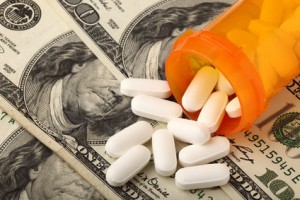A new bill would give the FDA more power to ban supplements you rely on. We must stand against it. Action Alert!
Listen to the audio version of this article:
THE TOPLINE
- A new bill purportedly about helping the FDA remove illegal drugs masquerading as supplements from the market is a dangerous power-grab.
- The FDA already has the authority to remove supplements spiked with unapproved drugs from the market—and it has done so.
- FDA officials claim the bill is about making the FDA’s job easier and products safer for consumers, but, sorry, this doesn’t pass the sniff test.
Your ability to access a wide range of innovative and efficacious supplements is being threatened by two initiatives in Congress. If it wasn’t bad enough that Senator Dick Durbin (D-IL) is trying once again to pass his anti-supplement “mandatory product listing” legislation, he’s introduced another bill to give the FDA still more authority over our supplements. We cannot allow either of these bills to move forward. Stand with us and protect your supplements!
Representative Frank Pallone (D-NJ) has teamed up with Sen. Durbin to introduce a bill called the “Prohibiting Tianeptine and Other Dangerous Products Act.” Tianeptine is a prescription drug used for depression in some European, Asian, and Latin American countries, but, here’s the thing, it isn’t approved for use in the US. The bill prohibits the “introduction or delivery for introduction into interstate commerce of any product marketed as a dietary supplement that does not meet the definition of a dietary supplement.” It’s sounds simple and innocuous enough: you can’t sell a supplement that doesn’t meet the definition of a supplement. But for the reasons we’ll describe below, this is a dangerous and unnecessary bill that threatens critical supplements like CBD, NAC, NMN, and more.
As the title indicates, the stated purpose of the bill is to prevent the sale of tianeptine, which has earned the nickname in the US “gas station heroin.” Tianeptine is a prescription drug in other countries but has not been approved by the FDA for any medical use. Some companies have been selling tianeptine illegally, marketing it as a supplement in smoke shops, convenience stores, and gas stations.

The drug is an antidepressant and mimics the sedative effects of opioids. There have been a series of serious adverse events (seizures, loss of consciousness, high blood pressure, slow or stopped breathing, coma) and two deaths linked to tianeptine over the last few years. (For context, since 1998, there have been 513 adverse events linked to tianeptine reported to the FDA’s database—an average of 19 adverse event reports per year.)
Does the FDA need a new regulation to be able to go after bad actors selling an unapproved drug? The answer is “No.” In February 2024, the US Attorney’s Office announced that Nootropics Depot and its CEO were sentenced for illegal distribution of tianeptine and ordered to forfeit $2.4 million. The FDA also oversaw the voluntary recall of all of Neptune’s Fix Elixir products containing tianeptine. The recall notice states, “The presence of tianeptine renders the products unapproved drugs for which safety and efficacy have not been established and, therefore, are subject to recall.”
Hmmm…so the FDA does have the authority to go after unapproved drugs masquerading as supplements? So, what’s this bill really about?
FDA officials provide some insight. When asked why FDA’s current authorities were not sufficient to go after drugs masquerading as supplements, Cara Welch, director of FDA’s Office of Dietary Supplement Programs, essentially said that this policy is about making the FDA’s job of eliminating supplements easier. When there is an illegal product, she explained, the FDA must determine which set of regulations apply to that product—is it a misbranded supplement, an unapproved drug, etc. etc. Welch suggested that this analysis can be time-consuming and could require bringing in other divisions within the FDA. “It’s more of an inefficiency of our resources,” she said.
So, the FDA is saying that this new power is needed because it’s too hard to do its job…as it uses the laws in place to oversee massive recalls and federal enforcement actions against tianeptine.

None of this passes the sniff test. For starters, if the FDA already finds it difficult to efficiently use limited resources to enforce the law, how will they be able to effectively wield even more authority? It is also confusing why the FDA appears so confused about tianeptine. Clearly it is an unapproved drug and not a supplement—is it really that difficult to involve the proper authorities in other FDA divisions to get unapproved drugs off the market? If simple collaborations between offices at the FDA are so difficult, why give them even more authority?
Further, as we stated previously when we reported on a previous attempt to pass this policy, this is a real threat to natural supplements like CBD, NMN, and other natural ingredients that Big Pharma will want to turn into drugs using the FDA’s back-channel we’ve written so much about. The FDA has stated that CBD and NMN do not meet the definition of a supplement because they are being investigated as drugs—or in CBD’s case, a drug has already been approved. True, the FDA could already remove these products from the market, but passing this new bill would make the FDA’s job in eliminating these supplements far easier.
There’s an even more insidious angle at work here. In 2021, a Consumer Reports investigation found that the FDA was aware of the harms caused by tianeptine. Yet emails obtained by Consumer Reports through Freedom of Information Act (FOIA) requests revealed that the agency waited a full nine months to alert the public about the drug’s risks.
Could the FDA and its anti-supplement allies in Congress be using the harm caused by tianeptine to gain more power over supplements like they’ve always wanted? We don’t know, but it wouldn’t be the first time. After the Dietary Supplement Health and Education Act (DSHEA) was passed in 1994, the FDA commissioner at the time, Dr. David Kessler, was reportedly “so infuriated by the enactment of DSHEA that he ordered the FDA not to enforce the new law.” Former FDA officials subsequently admitted that the goal of this policy of non-enforcement was to allow the worst aspects of the supplement industry to run wild in hope that the law would be repealed. That plan did not work, but it’s these facts that cause us to raise our eyebrows at this new situation and wonder if there are any similarities.
Finally, there is the undeniable fact that supplements are overwhelmingly safe, as we’ve detailed elsewhere. This speaks to the fact that more regulations are not necessary to protect us from supplements—the laws on the books are more than sufficient if they are enforced to ensure that Americans can enjoy access to safe and effective natural products.
We must oppose this bill for the FDA power-grab that it is.
Action Alert! Write to Congress and oppose the Prohibiting Tianeptine and Other Dangerous Products Act. Please send your message immediately.





It is time, to go after this corrupt politicians. And if put our resources together and let the public know what people doing we can run them out of office..and the fda needs to be closed and the waiver system not be allowed any longer
Supplements are always better than pharmaceuticals. They are so much safer!
I always get receipt acknowledgements, from my legislators, when I use your automated contact process. If I contacted them directly I would get no response.